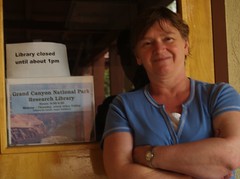This ACRL webpage caught my attention at the same time as an article by Mark Hepworth and Marian Smith entitled “Workplace information literacy for administrative staff in HE” published in the Australian Library Journal 2008 57(3) 212-236. I haven’t had time to read Mark and Marion’s article yet, but I note that it is making comparisons with the JISC i-skills model. IL for admin, technical and secretarial staff in HE is an area which I am currently thinking about, as I am in the process of setting up some workshops for the admin staff in the Faculty with which I liaise, probably starting with something very practical, like an EndNote workshop, but hopefully also covering some broader IL skills and concepts. I’d be interested to know if any other libraries are developing anything similar or have experienced an increased demand for this type of help.

Coypu in the Carmargue, France







